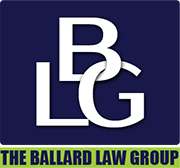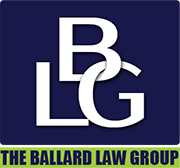It is certainly true that a single life event can cause serious financial strain in a person’s life. However, far too often financial troubles are an accumulation of life events and several poor financial decisions that lead to overwhelming debt. If you find yourself facing this type of difficult financial situation, it may be time to consider filing for bankruptcy.
If you are wondering if your financial situation warrants filing for bankruptcy, so that you can get a fresh financial start, consider these questions:
- Are you relying on credit cards to make ends meet each month?
- Are you dipping into or depleting savings/retirement funds to pay bills?
- Do you have several credits cards? Are your credit lines maxed out?
- Do you have large medical debts?
- Are you unable to pay utility or cell phone bills?
- Are you missing car payments?
- Are your wages being garnished?
- Are you having to borrow money from friends and family to stay afloat?
- Are you dealing with creditors calling to collect debts?
- Is your home in danger of foreclosure?
When the answer to these questions is yes, it is a warning sign that your financial situation is heading in the wrong direction. You don’t want to get to the point where you are completely overwhelmed and have to endure heckling from creditors or lose a beloved home. If you found yourself answering yes to these questions, recognize the warnings signs and that it could be the appropriate time to seek help in filing for bankruptcy.
When you choose to file bankruptcy, there are a variety of financial benefits. One of these benefits is the “automatic stay.” An automatic stay stops any debt collection against you while you work through your bankruptcy. This means creditors must stop pestering you to pay back debts. The stay will also stop a foreclosure from occurring, giving you time to put things in order to keep your home. It also stops wage garnishment.
Depending on what type of bankruptcy you choose to file, bankruptcy can also discharge many of your debts. In a Chapter 7 bankruptcy, unexempt assets will be sold to pay back what debt they can, and then you other debts will be discharged. This includes credit card debt and medical debts. In a Chapter 13 bankruptcy, your assets are not sold, but rather you will create a debt repayment plan. This type of plan gives you time (usually 3-5 years) to get back on your feet as you work to pay back your debts.
Get Help with your Atlanta Bankruptcy
If you have recognized warning signs in your life that your financial situation is getting unmanageable, reach out to an experienced Atlanta Bankruptcy attorney to see how bankruptcy can help. The skilled attorneys at The Ballard Law Group can answer your questions about bankruptcy and help you determine which type is right for you. We can help you work toward a financially stable future. Give us a call today at (404) 800-9939 to schedule your free consultation.


